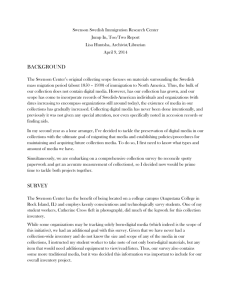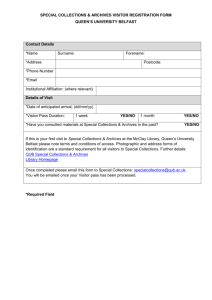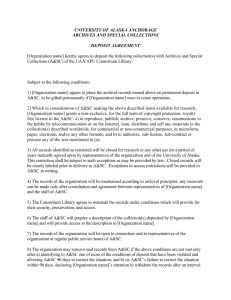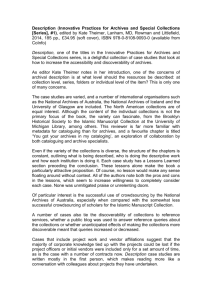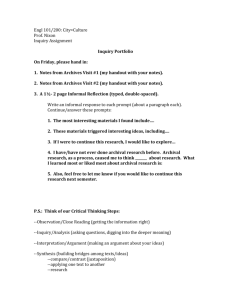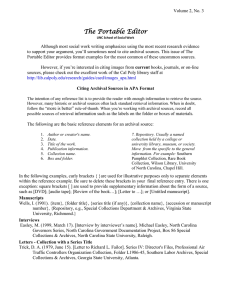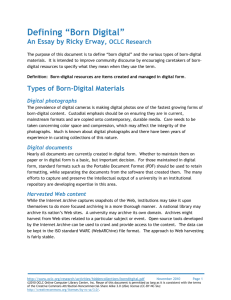View/Open - Cardinal Scholar
advertisement
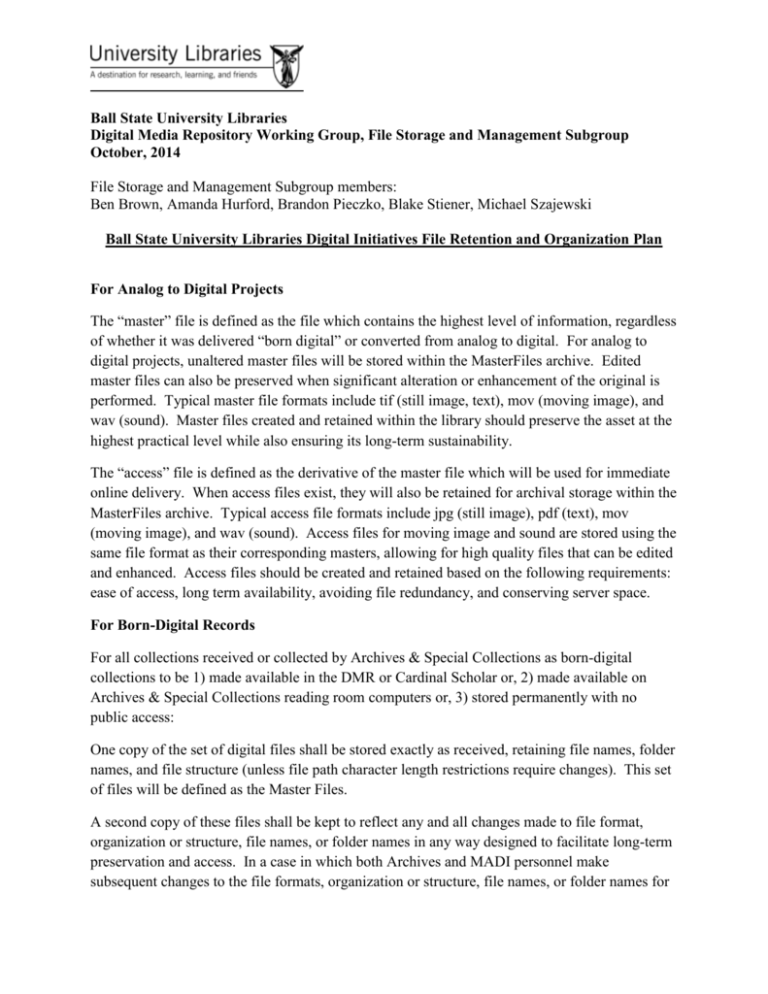
Ball State University Libraries Digital Media Repository Working Group, File Storage and Management Subgroup October, 2014 File Storage and Management Subgroup members: Ben Brown, Amanda Hurford, Brandon Pieczko, Blake Stiener, Michael Szajewski Ball State University Libraries Digital Initiatives File Retention and Organization Plan For Analog to Digital Projects The “master” file is defined as the file which contains the highest level of information, regardless of whether it was delivered “born digital” or converted from analog to digital. For analog to digital projects, unaltered master files will be stored within the MasterFiles archive. Edited master files can also be preserved when significant alteration or enhancement of the original is performed. Typical master file formats include tif (still image, text), mov (moving image), and wav (sound). Master files created and retained within the library should preserve the asset at the highest practical level while also ensuring its long-term sustainability. The “access” file is defined as the derivative of the master file which will be used for immediate online delivery. When access files exist, they will also be retained for archival storage within the MasterFiles archive. Typical access file formats include jpg (still image), pdf (text), mov (moving image), and wav (sound). Access files for moving image and sound are stored using the same file format as their corresponding masters, allowing for high quality files that can be edited and enhanced. Access files should be created and retained based on the following requirements: ease of access, long term availability, avoiding file redundancy, and conserving server space. For Born-Digital Records For all collections received or collected by Archives & Special Collections as born-digital collections to be 1) made available in the DMR or Cardinal Scholar or, 2) made available on Archives & Special Collections reading room computers or, 3) stored permanently with no public access: One copy of the set of digital files shall be stored exactly as received, retaining file names, folder names, and file structure (unless file path character length restrictions require changes). This set of files will be defined as the Master Files. A second copy of these files shall be kept to reflect any and all changes made to file format, organization or structure, file names, or folder names in any way designed to facilitate long-term preservation and access. In a case in which both Archives and MADI personnel make subsequent changes to the file formats, organization or structure, file names, or folder names for a set of digital files, only one copy of this set of files needs to be retained. This set of files will be defined as the Access Files. Folder Naming Folders containing assets from Digital Media Repository collections will be named according to the Digital Media Repository collection name. Folders containing assets from born-digital or digital-only archival collections will be named according to the digital archival identifier assigned by Archives & Special Collections along with a representative word identifying the collection as determined by Archives & Special Collections. Punctuation and spaces will be omitted to limit file path character length. SPEC063_SIA, RG310102_Sample Organization and Structure of Complex Collections In cases in which a portion of a born-digital archives collection will be made available in the DMR and a portion of it will not, the collection will be stored as a born-digital or digital-only collection. The collection’s Access Files folder will be subdivided into sections for DMR and non-DMR content. In cases in which a DMR collection will contain assets from multiple born-digital or digital-only archival collections, the archival collections will be stored separately. A DMR collection-level folder will be maintained to store documentation for the collection as well as references to the other archival collection-level folders containing Access File content for that DMR collection.

